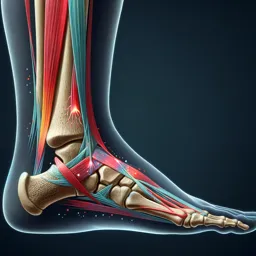Introduction
Physiotherapy is an exciting and rewarding field that offers the opportunity to improve the quality of life of individuals through physical rehabilitation, injury prevention, and health promotion. If you’re considering a career or further education in physiotherapy, here’s a comprehensive guide to help you get started.
What is Physiotherapy?
Physiotherapy is a healthcare profession that focuses on the assessment, diagnosis, and treatment of physical dysfunction and movement disorders. It involves a variety of techniques and approaches, such as manual therapy, exercise, and electrotherapy, with the aim of restoring optimal function and movement to the body.
Why Choose Physiotherapy?
Physiotherapy is a steadily growing profession that offers a wide range of opportunities to work in various settings, including hospitals, private clinics, sports facilities, and rehabilitation centers. It’s a fulfilling career that not only involves helping patients recover but also educating them about maintaining their health and preventing injuries.
Getting Started
1. Understand the Prerequisites
Before diving into physiotherapy, it’s essential to understand the educational requirements and prerequisites. Most physiotherapy programs require a background in biology, anatomy, kinesiology, or related fields. Ensuring you have the necessary qualifications can pave the way for a successful application process.
2. Find the Right Program
There are various physiotherapy programs available online and offline. Research and choose a course that fits your learning style, budget, and career goals. Consider programs that offer practical training, internships, and up-to-date curricula taught by experienced professionals.
3. Participate in Workshops and Seminars
Attending workshops and seminars can provide invaluable hands-on experience. These events are excellent for networking, learning from experienced practitioners, and staying current with the latest techniques and research in physiotherapy.
4. Gain Practical Experience
Practical experience is crucial in physiotherapy. Volunteer or seek internships at local clinics, hospitals, or sports organizations to gain real-world experience. This exposure helps build your confidence and skill set, making you better prepared for a professional career.
5. Join Professional Organizations
Becoming a member of professional organizations can provide access to resources, continuous education opportunities, and a network of professionals sharing your interests. It’s also a great way to stay informed about industry trends and advancements.
Continuing Education and Career Development
Physiotherapy is a field where continuous learning is essential. As you progress in your career, consider pursuing advanced certifications or specializations to expand your knowledge and skills. This continuous development can open doors to diverse career opportunities and leadership roles within the healthcare industry.
Conclusion
Embarking on a career in physiotherapy can be both challenging and rewarding. With the right approach and dedication, you can make a significant impact in the world of healthcare. Utilize online resources, such as video lessons and free classes, to start your journey effectively. Remember, the field of physiotherapy is not just about treatment—it’s about inspiring change and promoting lifelong health and well-being.































